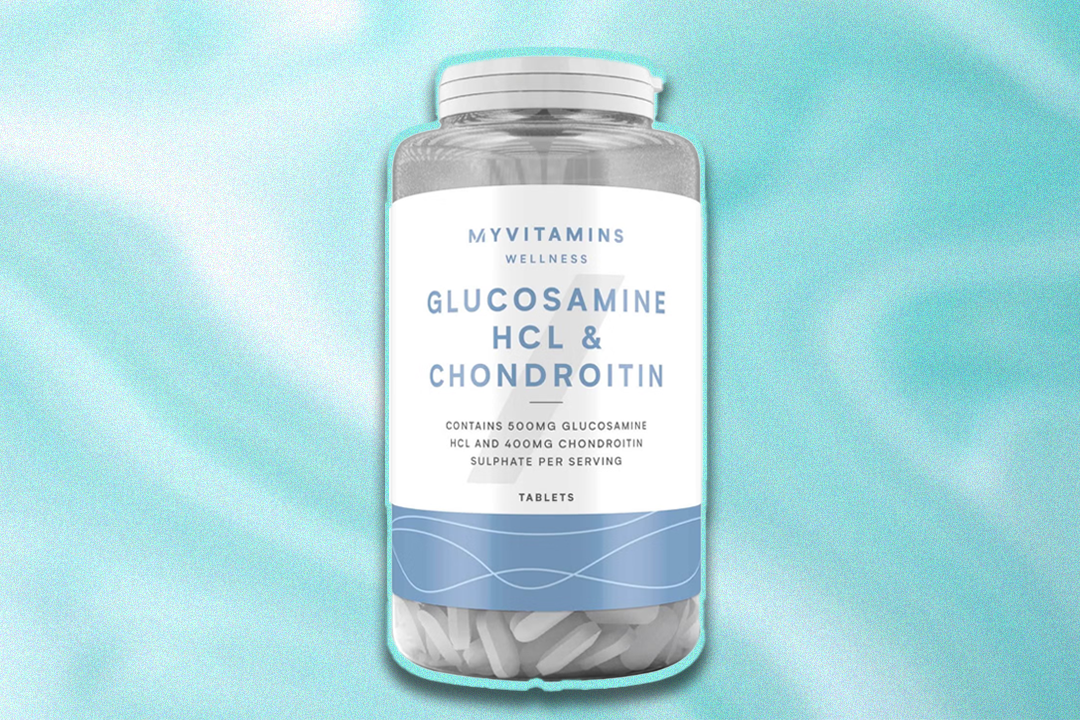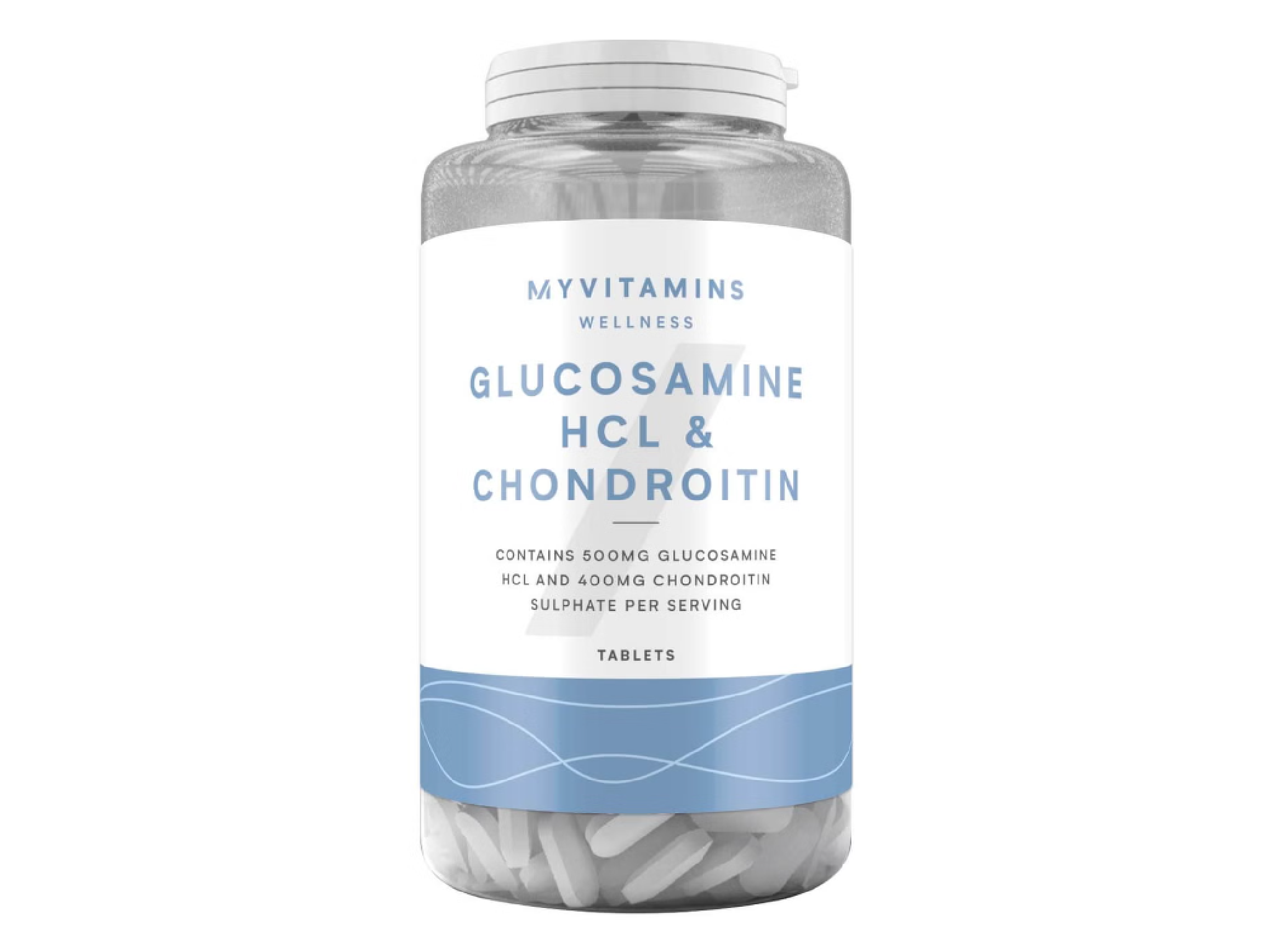What are the health benefits of glucosamine supplements?
Glucosamine is a building block of cartilage so could taking a supplement benefit joint health?


Your support helps us to tell the story
From reproductive rights to climate change to Big Tech, The Independent is on the ground when the story is developing. Whether it's investigating the financials of Elon Musk's pro-Trump PAC or producing our latest documentary, 'The A Word', which shines a light on the American women fighting for reproductive rights, we know how important it is to parse out the facts from the messaging.
At such a critical moment in US history, we need reporters on the ground. Your donation allows us to keep sending journalists to speak to both sides of the story.
The Independent is trusted by Americans across the entire political spectrum. And unlike many other quality news outlets, we choose not to lock Americans out of our reporting and analysis with paywalls. We believe quality journalism should be available to everyone, paid for by those who can afford it.
Your support makes all the difference.As we age, exercise can cause us to feel more tension in our joints. For example, there could be a litte stiffness in the knees after reaching for a shot in tennis, or our ankles may feel a twinge after a run. This is a normal part of ageing, but there are ways to stave off the worst effects of joint pain as we grow older.
For some people, glucosamine is used as a remedy thanks to it’s well-researched effects on longevity. But what exactly does it do, and is there a reason that so many people adding it to their wellness routines?
Glucosamine is a natural compound found in cartilage, the tissue that cushions our joints, so some experts believe that supplementing it can help to restore or at least maintain cartilage, which naturally wears down as we age.
Glucosamine supplements are recommended for easing joint pain and maintaining flexibility, and mobility. So how much can taking a capsule a day help? Here’s everything we know about the benefits of glucosamine, according to the latest research.
What is glucosamine?
Glucosamine is a naturally occurring compound found in the body. It’s a building block for cartilage, the tough, rubbery tissue that cushions bones at our joints. As we age, our body’s natural production of glucosamine can decrease. This can lead to joint discomfort and stiffness, especially in midlife when the other components responsible for moisture and cushioning in the body also start to decrease naturally.
Glucosamine supplements are designed to top up the body’s level of glucosamine in a bid to keep joints moving smoothly. These supplements come in different forms, including glucosamine sulfate and glucosamine hydrochloride, and are they are either derived from shellfish or made synthetically.
Glucosamine sulphate is widely thought to be better absorbed by the body as the sulphur molecule is used by the body to produce cartilage. However, glucosamine hydrochloride has a higher concentration of glucosamine per dose.
What are the benefits of glucosamine?
Glucosamine has been the subject of several scientific studies that have found it can reduce joint pain, improve mobility, and slow cartilage degeneration in certain circumstances.
A study published in The Lancet showed that glucosamine sulfate significantly reduced symptoms of knee osteoarthritis over a three-year period compared to a placebo. Participants experienced less pain and improved joint function, suggesting that long-term use may provide benefits .
If someone is prone to joint degeneration, supplementing with glucosamine could slow the decline. A study from Arthritis & Rheumatism found that glucosamine sulfate not only helped relieve pain but also slowed down the narrowing of joint space, a marker of cartilage breakdown, in people with knee osteoarthritis.
And it’s not just effective on knees. Another study published in the Journal of Rheumatology suggested that glucosamine might be beneficial for people with osteoarthritis of the hip.
Should you take glucosamine?
The best way to stay mobile and avoid too much impact on your joints is to adapt your movement as you age. By listening to your body and not pushing it too hard, you’ll be able to avoid injuries. This can be challenging in some cases, especially if you’ve always loved running but start to find that the impact on your ankles and knees is starting to cause you pain. However, by making small changes like wearing running shoes that absorb shock and stretching beforehand, you should be able to run for longer.
If your preferred method of exercise is starting to cause you too much discomfort, you might consider trying something like pilates which works the whole body without placing too much impact on the joints. Strength training can also help with keeping bones strong throughout your life and can help with lessening the impacts of degeneration as you grow older.
You can also support your general wellbeing by eating foods that are rich in protein, collagen and calcium. Taking a glucosamine supplement on top of all these steps can support healthy joints and better mobility in the long term, however, without a healthy diet and regular movement, you might find that glucosamine supplements don’t have as great an impact.
The glucosamine supplement to buy
Myvitamins glucosamine HCI and chondroitin supplements, 120 supplements: £13.61 , Myprotein.com

Myvitamins Glucosamine HCl supplement contains glucosamine hydrochloride (HCl) as its primary ingredient. Each tablet typically provides 1000mg of glucosamine HCl, a high concentration that aims to support joint health. While it lacks the sulfur molecule, these easy to swallow capsules provide 40 per cent more glucosamine than glucosamine sulphate.
This high concentration promotes the production of glycosaminoglycans, substances crucial for maintaining and repairing cartilage. It can be difficult to get glucosamine from our diet alone as it’s mainly found in shellfish so supplementing with these tablets is a convenient way to keep levels high.
These tablets have an edge on other glucosamine supplements because they contain 400mg of chondroitin per serving. Chondroitin has anti-inflammatory properties to reduce pain and inflammation. Furthermore, studies suggest that chondroitin may slow down the progression of cartilage degradation in conditions like osteoarthritis. It’s able to inhibit enzymes that break down cartilage, to help preserve joint tissue, potentially reducing further damage over time.
At £13.61 for a four-month supply, each capsule costs just over 10p per serving, which is a small price to pay for the potential long-term benefits for joint mobility and flexibility.
Read more: Best collagen supplements, as recommended by experts




Join our commenting forum
Join thought-provoking conversations, follow other Independent readers and see their replies
Comments